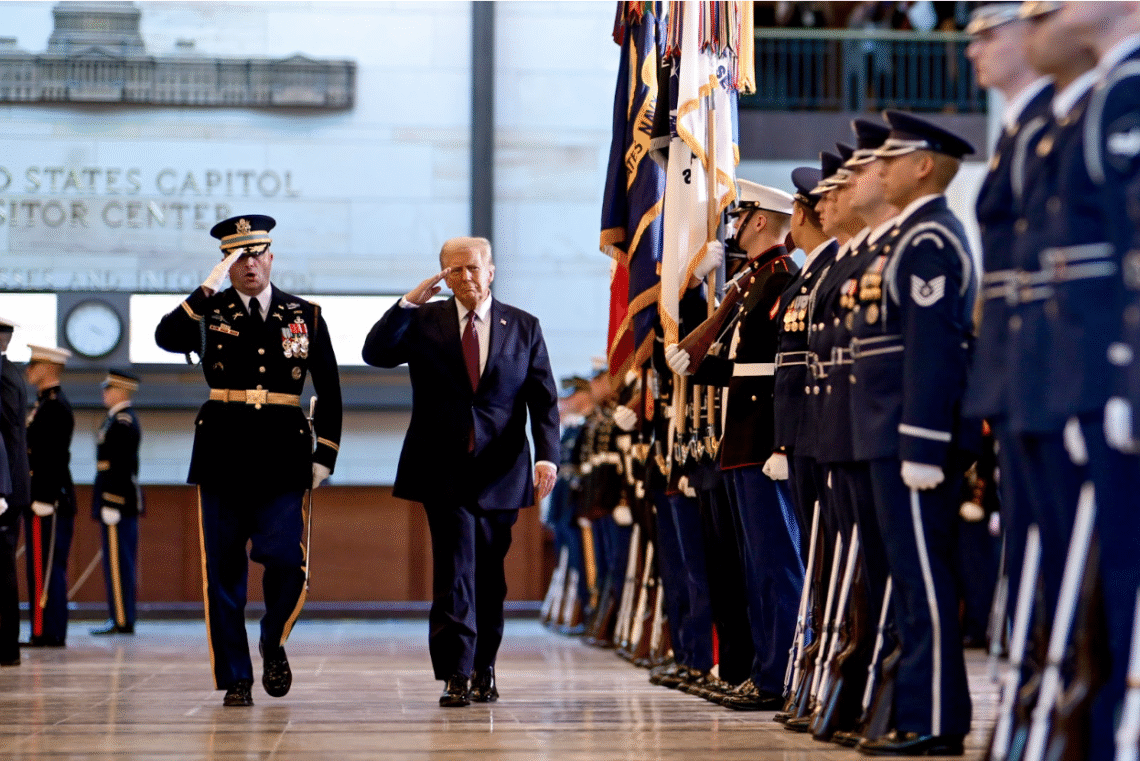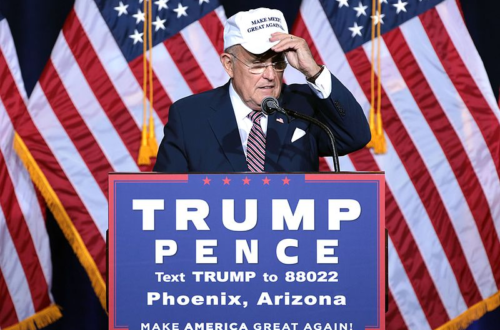On Sep. 5, President Donald Trump signed an executive order permitting Defense Department officials to use the ‘Department of War’ moniker as a secondary title. Although the Department of War is a reference to previous United States governmental structures, the name change marks a significant shift in US foreign policy. Creating a dangerous precedent for our democracy.
President Trump ran on a platform that championed peace and an “America First” isolationist approach on the world stage. Then why rename the department? It can only be seen as part of the President’s larger effort to strengthen his control over the federal government. And to establish a larger military presence in the United States and overseas.
However, the Department of Defense was previously named the Department of War, with the National Security Act of 1947 changing it to the Department of Defense. Some might argue the DOD going back to its old name would not be a dangerous precedent for American democracy. But the Department of Defense name change represented a positive development in U.S. involvement abroad: War was no longer sought after but instead resulted from necessity.
This is exemplified by the United States’ reaction to Saddam Hussein’s invasion of Kuwait. We reacted strongly to an unprompted breach of sovereignty in the Gulf. As a result, we gained a valuable ally that will support US interests.
This is in stark contrast to the Department of War era invasions on foreign soil designed to further US colonial interests. The Invasion of Mexico in the Mexican-American War is representative of this era, as we moved to take over another sovereign country to achieve “manifest destiny.”
By returning to the Department of War era of American Foreign Policy, the United States moves further towards a neo-colonial era of unnecessary wars and involvement abroad.
The U.S. employs a foreign policy centered around intervention and a pro-war policy. It will not fulfill its role as a leader of the free world. Referring to the Department of Defense as the ‘Department of War,’ the U.S. demonstrates to other nations that it is no longer a country of peace and prosperity but rather a country of conflict, embodying the criticisms shared by anti-Western states.
This is seen through the Supreme Leader of Iran’s comments on the U.S., declaring that “Americans won’t be satisfied with anything less than the surrender of Iran … such an event will never happen”. The intense resistance to the United States’ involvement in the region can only result in an escalation if the ‘War Department’ were to attempt to create change.
This shift toward conflict is also spearheaded by Trump’s attack on Iran on June 21, 2025, when he deployed American bombers and equipment to destroy key Iranian nuclear sites. Although the move ended a 12-day war between Iran and Israel, it pulled the United States into an avoidable military conflict, taking resources from what’s important: fixing our domestic issues.
We are not in a position to go to war in today’s political climate. According to a 2024 Gallup Poll, 80% of U.S. adults believe the country is too divided. This partisan divide in government will only lead to an increased strain on our foreign policy goals.
Until a working agreement is reached, the U.S. ought to employ a foreign policy of economic stimulus funded by domestic enterprise, with peace, not war, as a priority. Perhaps the president could consider his own stance on tariffs and employ “a little tough love” by improving domestic affairs before interfering overseas.
Instead of focusing on domestic issues, such as the 166 school shootings since the beginning of 2025. Trump has focused on foreign wars and conflicts, claiming to have a positive track record in foreign wars, declaring he “solved every one of them, and we’re going to get the other one done too.” This bold claim is unsubstantiated when you look at his track record; the renaming, along with his missile strikes, will only push the United States further towards an inevitable foreign conflict.
The United States should not maintain a hawkish foreign policy of expansionism but rather should create a system of oversight in which we are considered a protector of the free world.
According to the Pew Research Center, the United States no longer heralds the same respect globally as it has in the past, with the majority of countries beginning to lose faith in the U.S. government. In the 24 nations surveyed by the research center, 19 had a lack of confidence in President Trump’s leadership in foreign affairs.
If we no longer hold the respect of our allies and other nations abroad, how can we expect their support when we get involved abroad? The goal of the United States abroad should not be frivolous wars and spending, as shown by the $2.26 trillion and $3 trillion spent in Afghanistan and Iraq, respectively. But instead should be helping others through the EDA and the now-defunct USAID. Thereby returning to our rightful role as the leaders of the free world.
The U.S. cannot rely on its traditional role as the global leader to create pro-U.S. allied states. The U.S. should instead seek to cultivate a desire among smaller states to work as economic partners as a means to strengthen international cooperation.
As the U.S. heads further into a dark age, we must look to our foreign affairs as the light among the darkness, as a way to create a lifeline when we inevitably re-enter the realm of international conflict. The president’s renaming of the Department of Defense, combined with his missile strikes, will only push the U.S. further toward an inevitable and avoidable foreign conflict.
Check out other recent articles from the Florida Political Review here.




